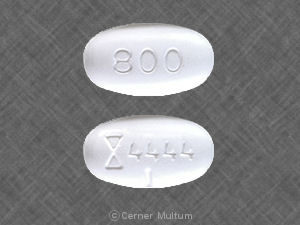Gabapentin oral capsule is used for short-term or long-term treatment.

The length of treatment depends on what condition it’s being used to treat. It comes with serious risks if you don’t take it as prescribed.
If you stop taking it suddenly or don’t take it at all:
-
- For seizures: This can increase your risk of status epilepticus, which is a medical emergency. With this condition, short or long seizures occur for 30 minutes or more. If your doctor decides to reduce your dose or have you stop taking gabapentin, they will do this slowly. Your dose will be reduced or your treatment stopped over the course of at least one week.
- For postherpetic neuralgia: Your symptoms won’t improve.
If you miss doses or don’t take it on schedule: Your medication may not work as well or may stop working completely. In order for this drug to work well, a certain amount needs to be in your body at all times.
If you take too much: You could have dangerous levels of the drug in your body. Symptoms of an overdose of this drug can include:
-
-
- double vision
- slurred speech
- tiredness
- loose stools
-
If you think you’ve taken too much of this drug, call your doctor or local poison control center. If your symptoms are severe, call 911 or go to the nearest emergency room right away.
What to do if you miss a dose: If you forget to take your dose, take it as soon as you remember. If you remember just a few hours before the time for your next dose, then only take one dose. Never try to catch up by taking two capsules at once. This could result in dangerous side effects.
How to tell if the drug is working: You should have fewer seizures. Or you should have less nerve pain.
Suicide by Gabapentin Overdose
Gabapentin is an antiepileptic drug that is prescribed for both FDA-approved and multiple off-label conditions, and has a relatively safe side-effect profile.
Rare cases of overdose-related adverse effects have been reported in the literature. Described herein are the circumstances and autopsy findings of a 62-year-old woman with a history of depression, whose death was caused by intentional ingestion of excess gabapentin.
The postmortem peripheral blood gabapentin concentration as determined by high-performance liquid chromatography/tandem mass spectroscopy was 88 μg/mL.
Previously reported cases of individuals surviving gabapentin overdoses are discussed and compared with this case. Based on a review of the available literature, this appears to be the first published report of a death due solely to gabapentin toxicity.